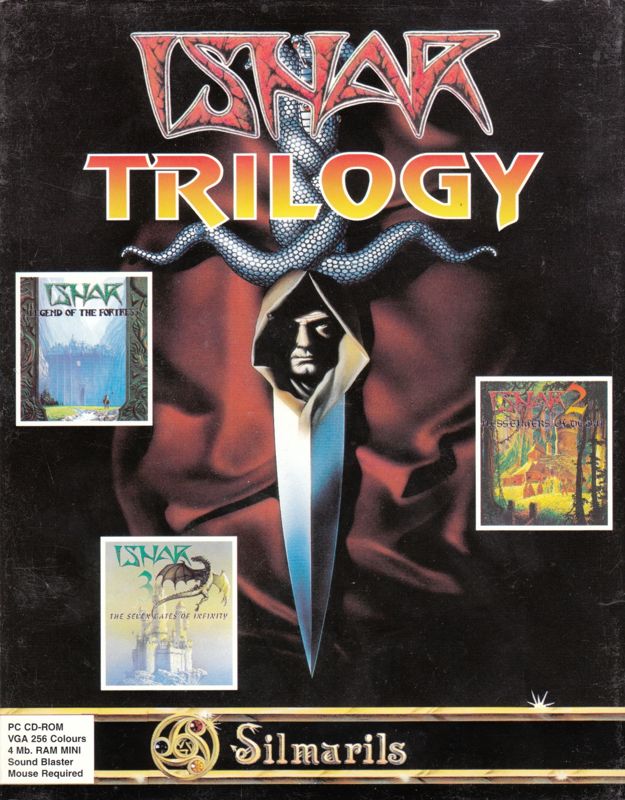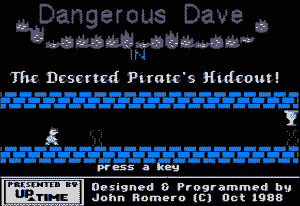Retro Replay Review
Gameplay
The Ishar Trilogy offers a deep and rewarding gameplay loop that builds on the classic Eye of the Beholder formula. Players assemble a party of diverse adventurers—warriors, mages, rogues, and healers—and guide them through labyrinthine dungeons, treacherous wilderness, and puzzle-laden fortresses. Exploration is methodical, demanding careful mapping and resource management as you navigate traps, secret doors, and twisted corridors.
(HEY YOU!! We hope you enjoy! We try not to run ads. So basically, this is a very expensive hobby running this site. Please consider joining us for updates, forums, and more. Network w/ us to make some cash or friends while retro gaming, and you can win some free retro games for posting. Okay, carry on 👍)
Combat in each installment is turn-based and tactical, encouraging strategic positioning and the judicious use of spells and abilities. In Ishar 1, skirmishes are relatively straightforward, but as you progress to Ishar 2 and Ishar 3, enemy variety and AI sophistication escalate, forcing you to adapt your party composition and tactics. Learned magic spells, weapon proficiencies, and specialized skills become vital to overcoming new challenges and boss encounters.
One of the trilogy’s standout features is the character import system. Heroes you’ve nurtured through Ishar 1 carry their levels, equipment, and talents into Ishar 2, and again into Ishar 3. This continuity rewards long-term investment: your veteran fighters face daunting new threats with an edge, and their personal backstories evolve alongside game events. This sense of progression adds emotional weight and replay value, as you’re constantly refining your optimal party makeup.
Graphics
For its era, the Ishar Trilogy presented impressive 2D visuals that balanced atmospheric detail with clear readability. Dungeon walls are textured with moss, cobwebs, and dripping water effects, while outdoor environments in Ishar 2 and 3 showcase lush forests, rugged mountain passes, and vibrant villages. This variety keeps exploration visually fresh and encourages careful observation for hidden doors and treasure caches.
Character and monster sprites are distinctive and well-animated, bringing life to every encounter. Trolls lumber menacingly, skeletons rattle their bones, and spectral foes flicker in and out of view. Spell effects—glowing runes, fire bolts, and shimmering shields—are colorful and convey impact without obscuring the battlefield. While modern standards have long surpassed these graphics, they retain a nostalgic charm and clarity that veteran RPG fans will appreciate.
Interface design across the trilogy remains consistent: an unobtrusive HUD displays party portraits, hit points, and inventory slots. Menus are text-heavy but logically organized, allowing rapid equipping of gear or casting of spells. Though mouse support can feel clunky by today’s benchmarks, keyboard shortcuts and hotkeys help streamline actions once familiarized. Overall, the presentation feels polished and fitting for a 1990s dungeon crawler.
Story
The narrative arc of the Ishar Trilogy unfolds steadily from game to game, weaving political intrigue, ancient prophecies, and personal vendettas. In Ishar 1 – Legend of the Fortress, you’re drawn into Lord Zubaran’s deadly stronghold to avenge a fallen comrade and restore peace to the realm. Simple yet effective, the plot motivates straightforward dungeon delving and introduces memorable NPCs and subplots.
Ishar 2 – Messengers of Doom raises the stakes: a shadowy cult sends portents of catastrophe across the land, and your party must chase rumors from bustling towns to desolate islands. Richer worldbuilding emerges as old alliances fracture and hidden agendas surface. Dialogue options add immersion, though choices are limited compared to modern CRPGs; still, the atmosphere of looming disaster keeps players engaged.
In Ishar 3 – The Seven Gates of Infinity, the story culminates in a journey through planar gateways and time-shifted realms. The plot complexity peaks here, combining loose threads from earlier titles with cosmic threats and moral dilemmas. Your seasoned party confronts betrayals and revelations that resonate with their shared history, making victory feel hard-earned and deeply satisfying. While the overall storyline adheres to familiar fantasy tropes, it’s delivered with competence and a touch of Silmarils’ signature flair.
Overall Experience
The Ishar Trilogy remains a compelling package for fans of old-school RPGs. Its blend of character progression, exploration, and puzzle-solving offers dozens of hours of gameplay per title. The import feature elevates the series by preserving your party’s growth, turning a simple sequel series into an epic saga spanning three adventures.
Accessibility can be a hurdle: modern players may need to install community patches or use compatibility layers to run the games smoothly on current hardware. The learning curve is steeper than contemporary RPGs, with minimal hand-holding and a reliance on player-driven mapping and experimentation. However, for those seeking an authentic retro dungeon-crawling challenge, these titles deliver a gratifying mix of strategy and discovery.
In sum, the Ishar Trilogy is a testament to Silmarils’ dungeon design prowess and commitment to continuity. Its graphics and interface may feel dated, but its gameplay depth, robust story progression, and the thrill of importing your heroes ensure it holds up as a classic. Whether you’re revisiting these gems or exploring them for the first time, the Ishar collection offers a rich, immersive journey through fantasy realms that defined an era of PC role-playing.
 Retro Replay Retro Replay gaming reviews, news, emulation, geek stuff and more!
Retro Replay Retro Replay gaming reviews, news, emulation, geek stuff and more!




Reviews
There are no reviews yet.